Who Is a Knowledge Lover?
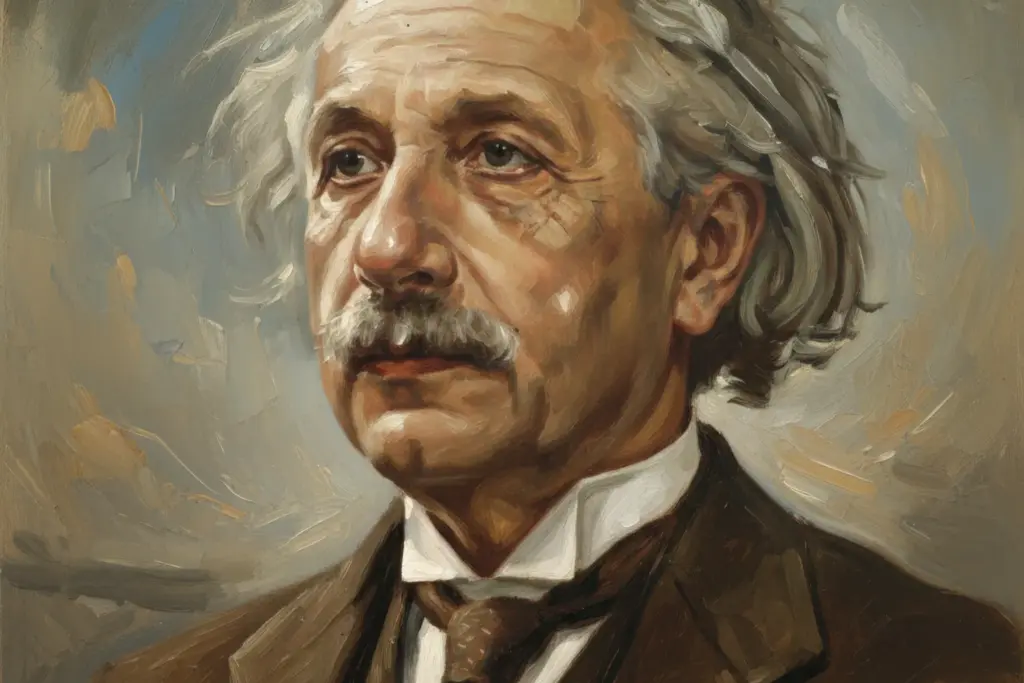
Einstein once said, “The important thing is not to stop questioning” – words that still ring true today, perhaps more than ever.
We live in strange times: drowning in information yet starving for real understanding. Our phones buzz with notifications, our feeds overflow with bite-sized facts and reels, but somehow we feel further from genuine knowledge than previous generations who had to walk to libraries and flip through card catalogs.
There’s something inspirational about people who truly love learning. Not those who collect degrees like trophies or memorize Wikipedia entries to win trivia nights, but those rare souls who approach understanding the way others approach art or music – with reverence, patience, and an almost childlike wonder that never seems to fade.
These are the knowledge lovers. They’re the ones still asking “why” long after everyone else has moved on. They connect dots others don’t even see. They treat every conversation, every book, every experience as a doorway to deeper comprehension.
But what makes someone a true knowledge lover? How do we tell the difference between someone who simply knows a lot and someone who genuinely loves the process of knowing? And why does this distinction matter more now than ever before?
This piece explores these questions by tracing knowledge love from ancient philosophy to modern innovation. We’ll meet historical figures who embodied this spirit and discover why our complex world desperately needs more people who approach learning not as a means to an end, but as an end worth pursuing in itself.
1. Defining a Knowledge Lover
Who Is a Knowledge Lover?
Knowledge Lover (noun): Someone who pursues understanding because they find joy in the process itself, not just the results. They maintain a deep, ongoing relationship with learning that goes beyond collecting facts or earning credentials. Key traits include boundless curiosity, intellectual humility, the ability to see connections across different fields, persistence through confusion, and a natural desire to share what they discover.
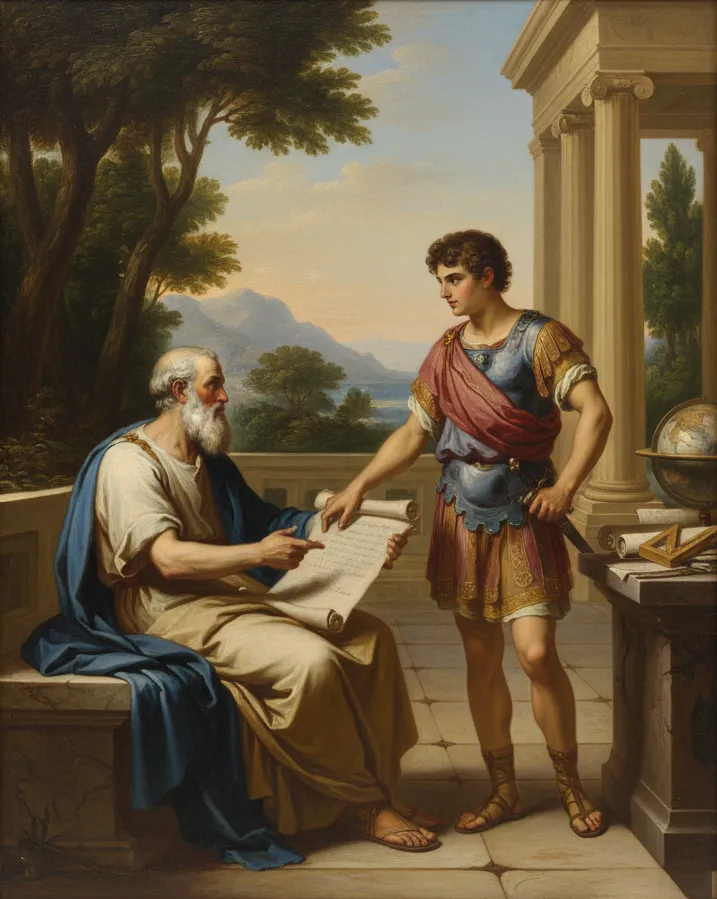
The Heart of the Matter
There’s a world of difference between knowing things and loving knowledge. It’s like the difference between owning a guitar and being a musician. You can possess all the right information, have the facts at your fingertips, even earn advanced degrees – but still miss the deeper magic of genuine understanding.
A knowledge lover approaches learning the way a master craftsperson approaches their work: with patience, attention, and deep respect for the process. They’re not trying to conquer information but to dance with it. Each new discovery feels less like acquisition and more like recognition – “Oh, so that’s how it works!”
What Sets Knowledge Lovers Apart
Pure Curiosity: Most of us ask questions because we need answers. Knowledge lovers ask because questioning itself feels good. They’ll spend hours wondering about things that have no practical application – like why certain music gives us chills, or how ancient civilizations figured out complex mathematics without computers. This isn’t idle speculation; it’s a form of intellectual joy.
Comfortable with Not-Knowing: Here’s something counterintuitive – the more knowledge lovers learn, the more comfortable they become with uncertainty. They’ve discovered that the best questions often don’t have neat answers, and that’s perfectly fine. Unlike those who need quick closure, knowledge lovers can sit with confusion until deeper understanding emerges.
Pattern Recognition Across Fields: Knowledge lovers see connections everywhere. They notice how principles from biology apply to economics, how ancient philosophy relates to modern physics, how poetry and mathematics share surprising similarities. Their minds naturally build bridges between seemingly unrelated domains.
Learning Through Failure: Most people hate being wrong. Knowledge lovers have made peace with it. They’ve learned that confusion, mistakes, and dead ends aren’t obstacles to understanding – they’re part of the path. Each failed attempt teaches them something valuable.
Sharing Joy: Perhaps most tellingly, knowledge lovers can’t help but share what excites them. Not to show off (though others sometimes misinterpret it that way), but because genuine enthusiasm is contagious. They’ve discovered that knowledge grows when shared, unlike material possessions that get divided up.
Similar but Different
| Term | What It Means | How It Differs |
|---|---|---|
| Intellectual | Someone who engages with ideas professionally | May treat thinking as work rather than joy |
| Scholar | Person with deep expertise in specific field | Often narrow rather than cross-disciplinary |
| Polymath | Individual with broad knowledge | Emphasizes breadth over depth of engagement |
| Nerd/Geek | Enthusiast about particular topics | Usually focused on specific interests |
What makes knowledge lovers unique isn’t just their intelligence or education – it’s their relationship with learning itself. They’ve fallen in love with the process of understanding, and that changes everything. Here is a list of more similar words for someone who loves learning.
2. Historical Roots of the Knowledge Lover
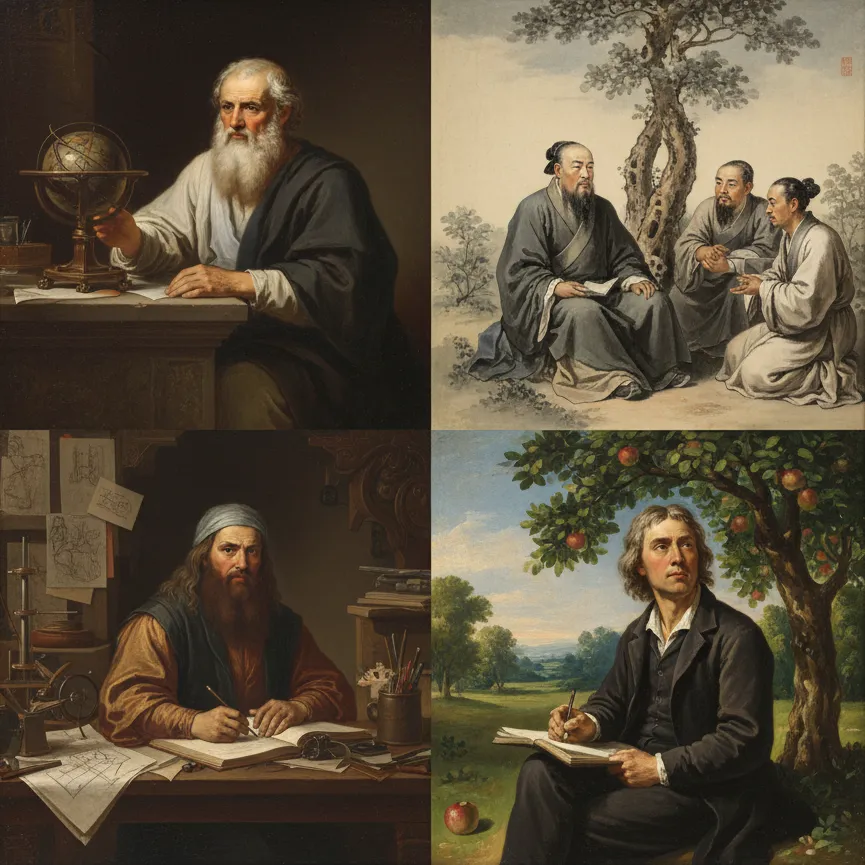
Ancient Greece: Where It All Started
The Greeks gave us the word “philosophy” – literally “love of wisdom” – and with it, a revolutionary idea: that seeking understanding could be life’s highest purpose. This wasn’t about practical training or professional development. It was about something much more fundamental.
Aristotle’s Approach: Take Aristotle. Here was someone who studied everything – animals, politics, ethics, physics, poetry. He wasn’t collecting random facts; he was trying to understand the underlying patterns that connect all existence. His patient, systematic approach to learning set a template that knowledge lovers still follow today.
The Socratic Revolution: Socrates turned conventional wisdom upside down by admitting he knew nothing. This wasn’t false modesty – it was strategic brilliance. By emptying his cup, he made room for genuine understanding. His method of questioning grew from love, not skepticism. He wanted to clear away false beliefs so real knowledge could flourish.
The Transformative Insight: The Greeks understood something crucial – true knowledge doesn’t just add information to your mental filing cabinet. It transforms who you are. They called this episteme – knowledge that goes beyond mere opinion to change your entire way of seeing.
Eastern Wisdom Traditions
Meanwhile, other cultures were developing their own approaches to knowledge love:
India’s Living Wisdom: Indian philosophy gave us jnana – a form of knowledge that combines intellectual understanding with direct experience. The teacher-student tradition recognized that some kinds of wisdom can only be transmitted through relationship, not just books.
Buddhist Insight: Buddhism contributed prajna – wisdom that emerges when thinking and experiencing merge. This tradition understood that knowledge without compassion becomes dangerous, that true understanding must engage both mind and heart.
Chinese Integration: Confucius emphasized that learning must improve character, not just intellect. The ideal person (junzi) combined scholarly achievement with ethical development. Knowledge without moral growth was considered incomplete, even harmful.
Renaissance: Universal Curiosity Unleashed
The Renaissance produced history’s most famous knowledge lovers – people who refused to stay within disciplinary boundaries.
Leonardo’s Notebooks: Da Vinci’s journals reveal a mind absolutely intoxicated with understanding. He studied bird flight not to build planes but because movement fascinated him. His anatomical drawings emerged from pure curiosity about how bodies work. His mirror writing suggests someone so absorbed in discovery that even note-taking became art.
Michelangelo’s Philosophy: Though remembered mainly as an artist, Michelangelo approached sculpture as a form of knowledge. He believed figures already existed within marble blocks; his job was simply to reveal what was hidden. This reflects the knowledge lover’s conviction that understanding uncovers truth rather than creating it.
Enlightenment: Democratizing Wonder
The enlightenment spread an optimistic message – anyone could become a knowledge lover. Reason and curiosity weren’t aristocratic privileges but human birthrights.
Franklin’s Experiments: Benjamin Franklin embodied this democratic spirit. His famous kite experiment grew from playful curiosity about electricity’s nature. He approached diplomacy, writing, and science with the same experimental attitude – always wondering, always testing, always learning.
Newton’s Humility: Despite revolutionizing physics, Newton insisted he was “standing on the shoulders of giants.” This humility kept him open to new discoveries throughout his life.
This historical research reveals knowledge lovers as civilization’s explorers – people who venture into unknown territories of understanding and return with insights that benefit everyone.
3. Traits of a True Knowledge Lover
Learning from the Masters
Real knowledge lovers share certain qualities that set them apart from casual learners or information collectors. These traits work together, creating a distinctive approach to understanding that transforms both the learner and their world.
Wonder That Serves No Master
The Nature of Pure Curiosity: Most learning is practical. We study to pass tests, develop job skills, or solve immediate problems. Knowledge lovers also do these things, but their deepest motivation comes from somewhere else entirely. They’re driven by questions that serve no practical purpose except to satisfy an inner hunger for understanding.
Jobs and the Unexpected Connection: Steve Jobs famously credited a calligraphy class – seemingly useless for a future tech entrepreneur – with inspiring Apple’s revolutionary approach to typography and design. This perfectly illustrates how knowledge lovers operate – they follow intellectual threads wherever they lead, trusting that understanding will eventually prove valuable in unexpected ways.
Da Vinci spent countless hours studying bird flight, not because he planned to build aircraft (the technology didn’t exist), but because natural movement captivated him. This kind of purposeless curiosity often leads to the most revolutionary breakthroughs.
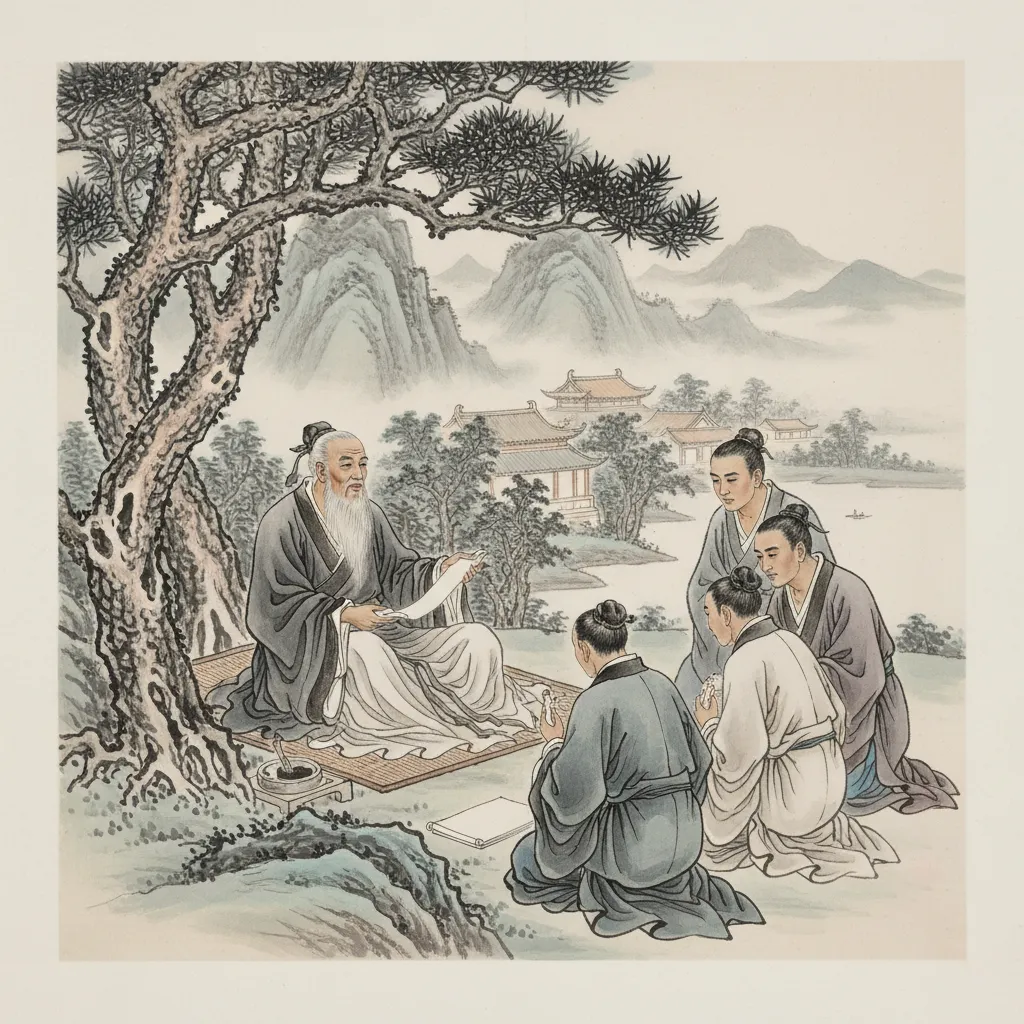
Humility in the Face of Mystery
Curie’s Lifetime Wonder: Marie Curie discovered radioactivity and won two Nobel Prizes, yet her personal letters reveal someone constantly amazed by how much remained unknown. Her laboratory notebooks, still dangerously radioactive over a century later, testify to someone who literally gave her life to understanding. Yet she never lost her sense of wonder or her humility before the vastness of ignorance.
The Expert’s Trap: Most experts gradually close their minds as their knowledge increases. They develop strong opinions, defend established positions, and lose the flexibility that made their initial discoveries possible. Knowledge lovers maintain what Zen teachers call “beginner’s mind” – the ability to approach familiar subjects with fresh eyes.
This intellectual humility isn’t weakness; it’s strategic. By admitting what they don’t know, knowledge lovers keep their minds open to new possibilities that rigid thinking would miss.
Seeing Invisible Connections
Sagan’s Cosmic Poetry: Carl Sagan transformed communication of science by recognizing deep connections between astronomy and human meaning. He didn’t just explain facts about distant stars; he helped people understand their cosmic significance. His ability to weave together scientific precision with poetic insight made complex ideas accessible while preserving their emotional power.
Darwin’s Synthesis: Charles Darwin’s theory of evolution emerged from his ability to connect biological observations with economic theory (specifically Malthus on population growth). This cross-pollination between fields exemplifies how knowledge lovers naturally build bridges between seemingly unrelated domains.
Learning from Failure
Edison’s Laboratory: Thomas Edison’s approach to invention reflected a deep truth about learning – failure is data, not defeat. His famous comment about discovering “ten thousand ways not to make a light bulb” reveals someone who understood that mistakes are simply understanding in disguise.
Einstein’s Patient Questions: Einstein spent years pursuing theoretical dead ends, yet never lost enthusiasm for the questions themselves. He understood that not all inquiries yield immediate results, but that patient engagement with difficult problems eventually produces breakthroughs.
Knowledge lovers develop what psychologists call “tolerance for ambiguity” – the ability to remain comfortable with uncertainty long enough for genuine insight to emerge.
The Sharing Impulse
Knowledge That Multiplies: Unlike material possessions that diminish when shared, knowledge grows through communication. Knowledge lovers intuitively understand this paradox and feel naturally compelled to share their discoveries.
This sharing isn’t about showing off (though others sometimes misinterpret it that way). It’s about extending the joy of understanding to others. Knowledge lovers have discovered that explaining something to someone else often deepens their own comprehension.
The best teachers are usually knowledge lovers – people who can’t contain their enthusiasm for their subjects and naturally inspire others to share their curiosity.
4. The Difference Between Knowledge Accumulation and Knowledge Love
Two Ways of Relating to Information
Think about the difference between someone who collects vintage guitars and someone who plays music. The collector might own dozens of beautiful instruments, know their histories and technical specifications, even maintain them perfectly. But the musician has a living relationship with sound itself.
The same distinction applies to knowledge. Some people accumulate information like collectors gathering artifacts. Others engage with understanding as a dynamic, transformative process.
The Collector’s Approach
Treating Knowledge as Property: Knowledge accumulators approach learning like shopping. They gather facts, skills, and credentials as possessions to store and occasionally display. Success gets measured by quantity: degrees earned, books read, information retained. Knowledge becomes a commodity rather than a relationship.
Their motivation usually involves external validation – impressing others, gaining credentials, achieving practical advantages. Nothing wrong with these goals, but they represent a fundamentally different orientation toward learning.
The Trivia Trap: In our digital age, it’s easy to mistake information access for understanding. Someone might be able to instantly retrieve historical dates without grasping historical patterns, quote philosophical arguments without integrating wisdom into their lives, or master technical procedures without comprehending underlying principles.
This creates what we might call the “trivia trap” – confusing memorization with comprehension, data with insight.
The Lover’s Approach
Cultivation Over Collection: Knowledge lovers engage with understanding like gardeners tending soil. They’re not trying to possess information but to participate in its growth. They measure richness not by how much they know but by how deeply they understand, how creatively they connect ideas, how transformatively knowledge affects their perception.
The Reader vs. The Library: A library contains vast information, perfectly organized and accessible, yet remains fundamentally passive. A reader brings texts alive through engagement, creating meaning through interaction between written words and lived experience. The library stores; the reader transforms.

Why Synthesis Matters More Than Storage
The Kaleidoscope Effect: True knowledge isn’t additive – it’s transformative. Each genuine insight doesn’t simply add to what came before; it reorganizes your entire understanding. Like a kaleidoscope where each turn creates completely new patterns from the same elements, real learning continuously transforms your worldview.
Making Peace with Forgetting: Knowledge accumulators fear forgetting as loss, investing heavily in retention techniques and external storage systems. Knowledge lovers understand that forgetting serves learning – the mind naturally releases details while preserving patterns, discards specific information while retaining transformative insights.
They trust that what truly matters will either stick or be rediscoverable, that understanding’s essence transcends specific facts.
The Digital Challenge
Our information-rich era makes this distinction both more subtle and more crucial. Search engines provide instant fact retrieval but can’t synthesize wisdom. AI processes data patterns but can’t experience the transformative joy of genuine comprehension.
Knowledge lovers serve as essential interpreters, helping distinguish between information abundance and understanding scarcity. They remind us that having access to facts isn’t the same as developing wisdom.
5. Knowledge Lover in Different Life Roles
Students: Beyond Grade-Getting
Knowledge-loving students stand out immediately. They’re the ones whose hands shoot up with questions that extend way beyond the syllabus. While classmates focus on “Will this be on the test?”, these students wonder about implications, connections, deeper meanings.
They often frustrate traditional educational systems because their curiosity doesn’t follow institutional timelines. They might spend hours exploring tangents that won’t appear on any exam, or struggle with material they find meaningless while excelling in areas that capture their imagination.
The Classroom Dynamic: These students transform classroom environments. Their genuine questions often lead discussions in unexpected directions. They challenge teachers to think beyond prescribed curricula and inspire peers to engage more deeply with subjects.
However, they sometimes clash with assessment focused systems that reward memorization over understanding, compliance over curiosity.
Professionals: Innovation Through Understanding
In workplace settings, knowledge lovers bring intellectual energy that transcends job descriptions. They read widely beyond their specialization, question established procedures, approach challenges with genuine curiosity rather than just problem-solving efficiency.
The Cross-Pollinator Effect: Their natural tendency to make connections between different fields often catalyzes innovation. They might apply insights from biology to business problems, use artistic principles in engineering challenges, or bring historical perspective to contemporary issues.
Workplace Tensions: Sometimes they clash with cultures that prioritize speed over depth. Their impulse to understand thoroughly before acting can be misinterpreted as indecision, even though their deeper comprehension often leads to more elegant, lasting solutions.
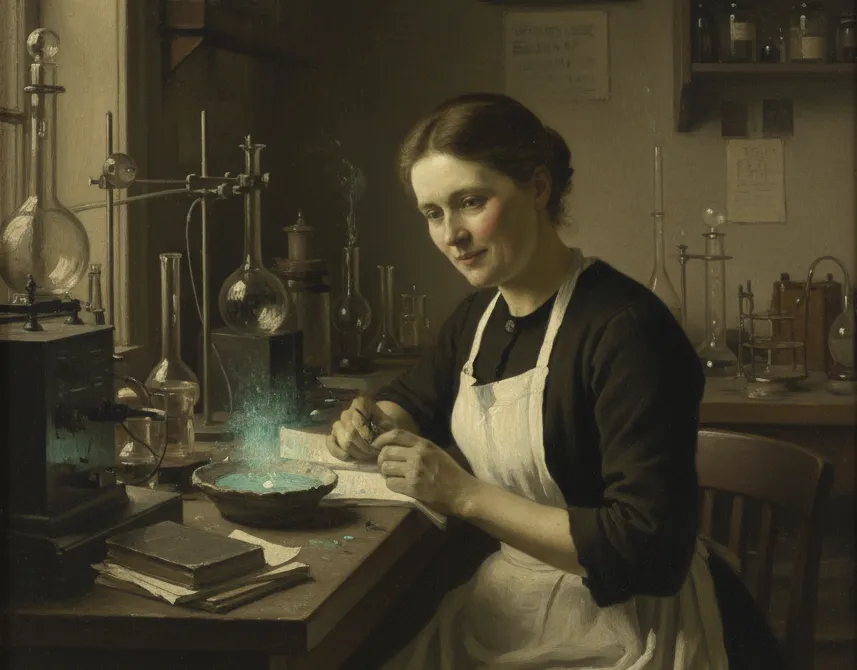
Parents and Teachers: Modeling Wonder
Knowledge-loving parents and teachers approach education as lifelong adventure rather than childhood phase. They demonstrate that questions often matter more than answers, that confusion signals learning’s edge, that intellectual courage trumps academic achievement.
The Guide vs. The Answer-Giver: Instead of providing quick responses, they guide others toward personal discoveries. They understand that knowledge given becomes information, while knowledge discovered becomes wisdom.
Creating Learning Environments: Their children and students absorb not just facts but ways of being in the world that treat understanding as sacred. They learn to value process over product, journey over destination.
Citizens: Nuanced Engagement
As community members, knowledge lovers approach social and political issues with thinking that transcends partisan simplicity. They seek understanding rather than quick judgment, explore complexity rather than embrace convenient narratives.
Democratic Contribution: Their commitment to truth over convenience makes them valuable participants in democratic discourse. They ask questions that complicate easy answers, seek evidence that challenges popular assumptions.
The Uncomfortable Truth-Teller: Sometimes their nuanced understanding makes them seem indecisive to those preferring clear positions. Yet their thoughtful analysis often leads to more sustainable solutions for community challenges.
Universal Characteristics
Across all roles, knowledge lovers maintain certain qualities:
- Beginner’s mind regardless of expertise level
- Integration of learning with character development
- Generous sharing of discoveries
- Transformation of environments through intellectual curiosity
- Bridge-building between different knowledge domains
They don’t just perform roles differently – they transform the very nature of those roles, turning routine activities into opportunities for discovery and growth.
6. Why the World Needs Knowledge Lovers
Our Current Predicament
We’re living through a strange paradox. Never before have humans had access to so much information, yet widespread confusion about truth and meaning persists. We’re drowning in data while thirsting for wisdom, connected to everything yet understanding less.
This isn’t accidental. Our digital age excels at processing information but struggles with synthesis, meaning-making, and wisdom cultivation. We need human interpreters – people who can distinguish between correlation and causation, between data patterns and genuine insight.
What Knowledge Lovers Provide
Essential Translation Services: While AI processes vast information and identifies patterns, knowledge lovers bring irreplaceable human capacities: ethical judgment, existential meaning-making, contextual understanding, values-based decision-making.
They serve as crucial bridges between raw information and human wisdom, helping us navigate the gap between what machines can calculate and what humans need to understand.
Tackling Complex Challenges
Our Interconnected Problems: Climate change, social inequality, technological disruption, cultural fragmentation – these challenges transcend single disciplines. They require solutions that integrate multiple perspectives, connect different ways of knowing, think systemically rather than linearly.
Knowledge lovers, with their natural inclination toward cross-disciplinary thinking, are uniquely positioned to develop holistic approaches to multifaceted problems.
Historical Precedent: Throughout history, breakthrough moments have been catalyzed by people who saw connections others missed. Galileo didn’t just make astronomical observations; he integrated them with mathematical reasoning to challenge humanity’s entire cosmic conception. Darwin combined biological observation with philosophical reflection to transform our understanding of human nature.
Combating Intellectual Fragmentation
The Silo Problem: Modern expertise often creates intellectual silos – specialists who know tremendous amounts about narrow topics but struggle to communicate across disciplines. Knowledge lovers naturally build bridges between these isolated domains.
Truth-Seeking in Polarized Times: Their commitment to understanding over ideology makes them invaluable for combating misinformation and intellectual manipulation. While propagandists exploit desires for simple answers and confirmation bias, knowledge lovers model the intellectual courage required for genuine inquiry.
Preserving Human Wonder
Beyond Utilitarian Calculation: In a world increasingly dominated by efficiency metrics and technological solutions, knowledge lovers preserve something essential – the sense that understanding itself is valuable, that beauty and truth matter beyond their practical applications.
The Joy Factor: They remind us that learning can be joyful, that curiosity is its own reward, that the process of discovery enriches life in ways that purely practical knowledge cannot.
Future-Proofing Wisdom
Preparing for Technological Integration: As AI becomes more sophisticated, the distinctly human contributions become more precious: creativity, ethical reasoning, meaning-making, wisdom cultivation. Knowledge lovers naturally develop these capacities.
Long-term Thinking: They tend to think beyond immediate concerns, considering how current decisions affect future generations, what values we want to preserve amid rapid change, how to integrate traditional wisdom with emerging knowledge.
The Multiplication Effect
Perhaps most importantly, knowledge lovers inspire others. Each one creates ripple effects of curiosity and understanding, modeling that learning is lifelong and intrinsically rewarding, demonstrating that intellectual humility leads to greater wisdom.
They don’t just contribute individually – they awaken the knowledge lover in others, creating expanding networks of thoughtful, curious people capable of addressing humanity’s greatest challenges with both rigor and wisdom.
7. Inspiring Stories of Knowledge Lovers
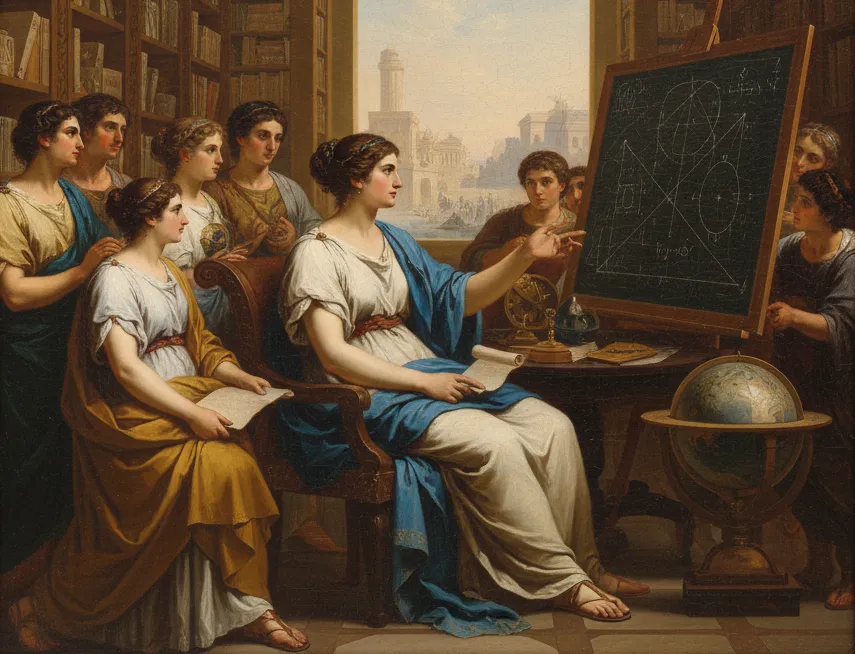
Ancient Courage: Hypatia of Alexandria
In fourth-century Alexandria, when women rarely received formal education, Hypatia became one of the ancient world’s most respected intellectuals. She taught mathematics, astronomy, and philosophy with an approach that integrated rigorous thinking with deep contemplation.
Her Revolutionary Method: Hypatia didn’t just transmit knowledge – she demonstrated that understanding could be a path to both personal liberation and social contribution. Her students came from across the Mediterranean, drawn not just by her expertise but by her infectious love of learning.
The Ultimate Sacrifice: Her murder by political opponents testified to something knowledge lovers throughout history have discovered – genuine understanding can threaten established power. Her legacy reminds us that the pursuit of truth sometimes requires courage.
Cross-Cultural Bridge: Rabindranath Tagore
Tagore embodied knowledge love’s capacity to transcend cultural boundaries while remaining rooted in particular traditions. Nobel Prize-winning poet, accomplished educator, philosopher, composer, and painter – he refused to be confined by disciplinary limitations.
The Synthesis Approach: His learning philosophy emphasized integration – Eastern wisdom with Western thought, ancient insights with modern understanding, artistic expression with scientific inquiry. His experimental school at Santiniketan demonstrated how intellectual, emotional, and spiritual development could be woven together.
Universal Resonance: Tagore’s work continues inspiring people worldwide because he showed how deep rootedness in one’s culture can actually enhance universal understanding rather than limiting it.
Renaissance Genius: Leonardo da Vinci
Da Vinci remains history’s most celebrated knowledge lover, approaching every phenomenon with identical passionate curiosity. His notebooks reveal someone absolutely intoxicated with understanding – studying water flow with the same intensity as human anatomy, approaching engineering problems with artistic sensibility.
The Unified Vision: He didn’t see separate subjects but different aspects of unified reality. His mirror writing suggests someone so absorbed in discovery that even documentation became creative expression.
Modern Relevance: In our specialized age, da Vinci’s integrated approach offers a powerful alternative model. He reminds us that the most revolutionary insights often emerge at the intersections between disciplines.
Democratic Learning: Benjamin Franklin
Franklin proved that knowledge love could flourish outside formal academic institutions. His electrical experiments grew from playful fascination rather than theoretical framework, yet yielded insights that advanced scientific understanding.
The Experimental Attitude: He approached everything – science, diplomacy, writing, civic life – with the same curious, experimental spirit. Always wondering, always testing, always learning from results.
Accessible Wisdom: Franklin demonstrated that rigorous thinking could be simultaneously profound and practical, sophisticated and accessible. His example continues inspiring self-directed learners worldwide.
Moral Courage: Malala Yousafzai
Malala embodies knowledge love’s moral dimension, literally risking her life for the right to learn. Her advocacy emerged not from abstract principle but from personal passion for education.
Education as Liberation: Her story demonstrates that knowledge love can be both individual fulfillment and social necessity. Her Nobel Peace Prize recognized that fighting for education ultimately means fighting for human dignity and potential.
Youth Leadership: She proves that age doesn’t limit knowledge love’s power. Her example inspires young people worldwide to see learning as both privilege and responsibility.
Entrepreneurial Innovation: Elon Musk
Despite his controversial aspects, Musk demonstrates knowledge love’s entrepreneurial possibilities. His approach to multiple industries – automotive, aerospace, social media – reflects genuine curiosity about fundamental problems rather than merely commercial opportunity.
First-Principles Thinking: His willingness to enter fields where he lacks formal training, to ask basic questions that experts take for granted, exemplifies knowledge love’s power to generate innovation through fresh perspective.
Cross-Industry Learning: By refusing to stay within traditional boundaries, he’s created breakthrough innovations that connect space exploration, sustainable energy, and transportation in novel ways.
Common Threads
These diverse figures share certain characteristics:
- Intellectual courage that questions conventional wisdom regardless of social pressure.
- Synthetic thinking that connects different domains to create new understanding.
- Persistence that sustains inquiry through difficulty and setbacks.
- Generosity that shares discoveries to benefit others.
- Transformation that allows knowledge to change who they are, not just what they know.
Their stories remind us that knowledge love isn’t abstract ideal but lived reality – not passive contemplation but active engagement with existence’s deepest questions and greatest challenges.
Conclusion: Rekindling the Knowledge Lover in Us All

The Capacity Within
Here’s what I’ve come to understand after exploring these ideas – every person carries the seed of knowledge love within them. It’s not reserved for geniuses or academics. It’s the same spark that made you wonder about stars as a child, that makes you lose track of time when something truly captures your interest, that drives you to ask “but why?” even when everyone else seems satisfied with surface explanations.
Our Strange Moment
We’re living in peculiar times. Information flows like water, yet genuine understanding feels scarce. We have instant access to humanity’s accumulated knowledge, yet confusion about truth and meaning persists. Our tools have never been more powerful, yet wisdom seems more elusive than ever.
This paradox makes knowledge lovers more necessary, not less. We need people who can navigate between information abundance and understanding scarcity, who can distinguish between data patterns and human meaning, who approach complexity with patience rather than demanding simple answers.
A Way of Being
Knowledge love isn’t a destination you reach after accumulating enough facts or earning enough degrees. It’s a way of traveling through life – approaching each day with curiosity intact, treating every encounter as potential learning, viewing questions as treasures rather than inconveniences.
It means making peace with not-knowing, finding joy in confusion (because it signals learning’s edge), and understanding that the most profound insights often come disguised as irrelevance.
The Beautiful Paradox
Here’s something wonderful about knowledge love – it multiplies when shared. Unlike material resources that get divided up, understanding grows through communication. Wisdom deepens when discussed. Joy increases when experienced collectively.
Every teacher who ignites curiosity, every parent who models intellectual courage, every friend who shares wonder at some discovery participates in this multiplication of human flourishing.
The Invitation
So here’s the invitation: notice where your natural curiosity leads you. What questions keep bubbling up despite their apparent impracticality? What connections do you see that others might miss? What would you explore if you didn’t need to justify its usefulness?
That knowledge lover who might have been dimmed by school systems focused on testing, workplace cultures prioritizing efficiency over understanding, or social pressures rewarding conformity over curiosity – that person is still there, waiting.
Joining the Conversation
When you choose to nurture your capacity for knowledge love, you join an ancient conversation that spans centuries and cultures. You connect with everyone who ever looked at the world with wonder and asked that beautiful, essential question: “Why?”
In that simple question lies the seed of all human wisdom. It’s been waiting patiently for the gentle cultivation that only love can provide. The invitation is always there, the opportunity always available, the potential always ready to unfold.
What matters isn’t where you start or how much you already know. What matters is your willingness to fall in love with understanding itself – to find in learning not just practical advantage but existential meaning, not just information but transformation.
The world needs more people like this. But more than that – you need to become this person. Because in awakening the knowledge lover within, you don’t just learn more. You become more. And that changes everything.
